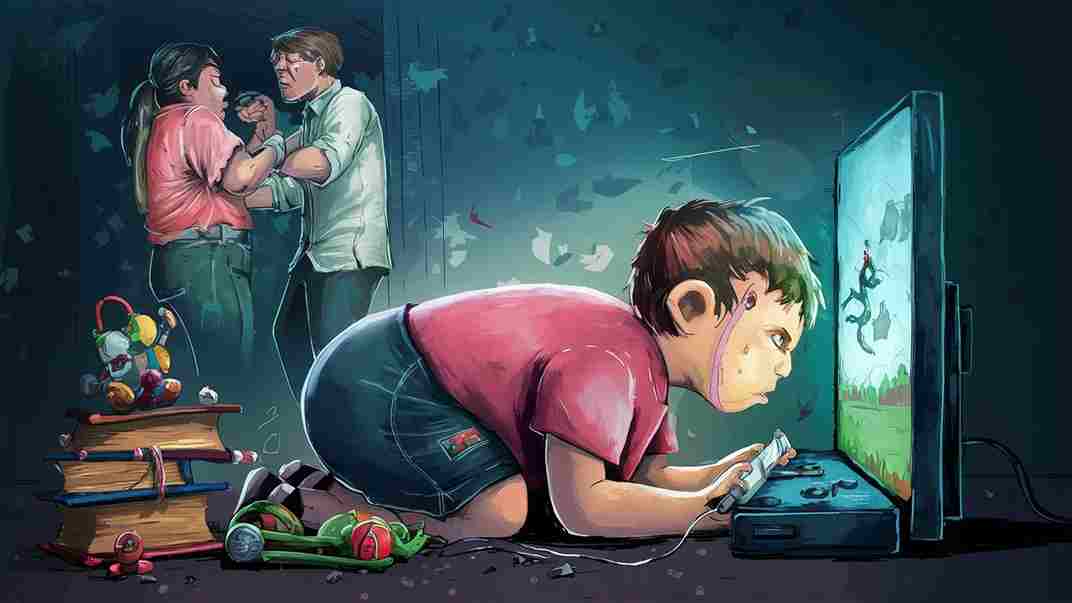Video games are a popular form of entertainment enjoyed by people of all ages. While they can be fun and exciting, it’s important to recognize that excessive gaming can have negative effects on individuals. Here are 10 negative effects of video games.
Why Does Everyone Like To Play Video Games?
People enjoy playing gaming because they offer entertainment, challenge, and escape from reality.
Games provide a sense of accomplishment, social interaction, and immersive experiences that appeal to diverse interests and preferences.
Additionally, advancements in technology have made games more accessible and engaging, contributing to their widespread popularity.
Understanding the potential negative impacts of video games on health is crucial because it allows individuals to make informed choices about their gaming habits.
Awareness helps in mitigating risks such as addiction, physical ailments, and mental health issues, promoting overall well-being.
10 Negative Effects Of Video Games
It’s important to know the bad effects of gaming because it helps us stay balanced. We can make better choices about how much we play, avoid problems like addiction or health issues, and have healthier relationships with games and other parts of our lives.
1. Spending too much time playing gaming can lead to addiction, causing individuals to neglect other responsibilities such as school, work, and relationships.
2. Excessive gaming can interfere with academic performance as it consumes time that could be spent studying or doing homework.
3. Sitting for long periods while gaming can contribute to health issues like obesity, back pain, and repetitive strain injuries.
4. Playing video games late into the night can disrupt sleep patterns, leading to fatigue and decreased cognitive function during the day.
5. Excessive gaming can lead to social isolation as individuals may prefer spending time alone playing games rather than engaging in real-life social activities with friends and family.
6. Some research suggests that exposure to violent video games may increase aggressive thoughts, feelings, and behaviors in players.
7. Excessive gaming has been linked to depression, anxiety, and other mental health issues, especially when gaming becomes a coping mechanism for dealing with stress or emotional challenges.
8. Individuals who spend a significant amount of time gaming may neglect personal hygiene habits such as bathing and grooming.
9. Gaming accessories can be expensive, and individuals who spend excessively on gaming may experience financial strain, especially if they prioritize gaming purchases over necessities.
10. Excessive gaming can strain relationships with family members, friends, and romantic partners, as it can lead to neglect and conflicts over time spent gaming versus time spent together.
While play can be enjoyable in moderation, it’s important to be aware of the potential negative effects and to balance gaming with other activities that promote physical, mental, and social well-being.
If you or someone you know is experiencing negative consequences due to excessive gaming, seeking help from a mental health professional or support group may be beneficial.
How To Stop Video Game Addiction?
Understanding how to stop video game addiction is crucial for regaining control of one’s life and promoting overall well-being.
- Set limits on gaming time.
- Find other hobbies and activities.
- Seek support from friends and family.
- Talk to a psychologist or counselor for professional help.
- Use apps or tools to track and limit gaming time.
- Understand triggers and find healthy coping strategies.
- Practice self-care and focus on overall well-being.
- Consider joining support groups or therapy programs.
- Create a supportive environment by removing temptations.
- Stay motivated and committed to making positive changes.
In short, to beat video game addiction, set limits, get support, and take care of yourself.
I hope you understood 10 negative effects of video games, beware the negative effects of video games is crucial for maintaining a healthy balance in life.

